Page 3
Beneath the Sugar Sky by Seanan McGuire [Wayward Children #3], Tor.com Publishing (excerpt — audio excerpt)
Synopsis: This is an exploration of the backstory of yet another of the supernaturally-affected members of the Home for Wayward Children – involving a quest to yet another magical portal world, where the protagonist’s very existence hangs in the balance.
What I thought: I really liked the first two in this series, Every Heart a Doorway and Down Among the Sticks and Bones. This did not “wow” me quite as much as the first one, but it’s still very good. It’s a quest story which provides a showcase for the author’s vivid visual imagery of her imaginary worlds. As with the previous works, it touches on issues of societal expectations and biases, and the way that we internalize these, whether we’re on the sending side or the receiving end. Reading the first two in advance of this one is not strictly required, but is really recommended.
Filer comments:
Arifel: [This] removed the socks from my feet and placed them in an orbit somewhere around Saturn. Seriously, if not for a random insult towards dogs at the end, I’d assume she’d been harvesting my thoughts to find the ultimate combination of things I personally relate to. Ocean worlds! Fat-but-athletic girl rep! Baking philosophy! YES. And it’s packaged in a way that’s probably still enjoyable even if you’re not me.
Xtifr: Literally just finished it yesterday, and yes, it’s a lot of fun. Good series. Not as relentlessly dark as the October Daye books, but not as silly as the InCryptid series. It’s a good balance. And it takes balls (ovaries?) to write a book about candyland for grownups.
Xtifr: [This one] relied more heavily on previous events than Down Among the Sticks and Bones – the main plot was driven by the fallout of the events in Every Heart a Doorway – and even it I would still count as standalone. The plot-relevant parts of the earlier books were explained well enough that you didn’t have to reference them to avoid confusion.
Lace: Every Heart a Doorway is still my favorite, but I’m glad we’ll get more stories in this multiverse.
recommended by Greg Hullender
Peer: [This] was right up my alley! Its the third book of the Wayward Children and while I got much enjoyment out of the first two, Both where not Quite “There” for me: I thought the first was to short for the murder mistery and the second had the disadvantage of being a prequel, where the ending was known. Now the third one finally lived up its potential (for me)! It being a road movie / quest it gives all the characters something to do and while you may say its not the most original take, it perfectly fits the world and tone of the [series]. I really enjoyed this!
Matt Y.: was fun but I didn’t get into it as much as the prior entry Down Among The Sticks And Bones.
Kyra: I was less impressed by [this one].
Arifel: my favourite of the Wayward Children books so far, though I have personal bias at play.
Contrarius: I liked [this] better than the previous stories in the series. I still don’t think they’re brilliant, but I enjoyed it more. It probably helped that they finally got a really good narrator for this one in the audio version.
Lfex: My novella Hugo list at this point [includes this story].
Lurkertype: I thought it was better than the others, and that’s literally all I remember.
Bonnie McDaniel: I liked [this], but not as much as Down Among the Sticks and Bones. It’s an edge case at best.
Lorien Gray: I also liked [this] better than Down Among the Sticks and Bones (I’m so tired of vampires).
Goobergunch: To me this was the best one so far, mostly because I found the Down Among the Sticks and Bones narrator to be painfully didactic and distracting from an otherwise enjoyable story. Didacticism is not completely absent here but I didn’t find it particularly intrusive, and the narrative was strong and coherent. I think this would probably work fine on its own storywise but you’d lose a lot of emotional resonance without having read Every Heart a Doorway first.
Suffer a Sea-Change by Seanan McGuire [October Daye], DAW Books (included with novel #12 Night and Silence) (excerpt of Night and Silence)
Synopsis: This novella follows directly on the events of Night and Silence, so to avoid spoilers I’ll just say that it adds insight into the life and personality of a previously little-seen character.
What I thought: One of the things that keeps me reading this series is the way that the author keeps expanding the world and the cast of characters, in a way that keeps it from getting stale while making it easy for me to remember what has happened in past books without the need for re-reading. It’s about making a place for yourself in a hostile world, and finding your “family” to share that place with you. The main characters are flawed. but nevertheless doing their damnedest to keep their loved ones safe and make the world a better place for both humans and fae. Both novel and novella are recommended to fans of the series; anyone else will be hopelessly lost, and should start with the early novels.
Filer comments:
Cassy B.: ARGH! I just finished Seanan McGuire’s Night And Silence, and the novella included at the end had the most execrable pun, that McGuire must have been planning ever since the very first book in the series! It can’t possibly be a coincidence that [spoiler!] Tvyyvna’f ynfg anzr vf abg Qnlr, be Znex, ohg Qnlr-Znex. N qnlznex vf na hayvg znevgvzr anivtngvbany nvq, ivfvoyr va qnlyvtug, gung znex unmneqf gb anivtngvba, yvxr ebpxf be errsf. Hfhnyyl n gnyy cbyr jvgu n ynetr ivfvoyr gevnatyr be fdhner fvta ba gbc, ohg uvfgbevpnyyl gurl unir orra zhpu snapvre. Nyfb, gur cnggrea ba n yvtugubhfr vf n qnlznex; vg vqragvsvrf juvpu yvtugubhfr lbh’er ybbxvat ng jura lbh frr vg sebz gur frn (gung’f jul gurl unir fgevcrf naq qvnzbaqf naq fcvenyf naq fb sbegu; fb lbh pna gryy gurz ncneg rnfvyl). Naq abj fur’f n Fryxvr. She’s taken twelve books to set this up…
Lies of the Beholder by Brandon Sanderson [Legion #3], Subterranean Press/Gollancz (excerpt)
Synopsis: Stephen Leeds, aka “Legion,” is a polymath whose unique mental condition generates a multitude of personae: hallucinatory entities with a wide variety of personal characteristics and a vast array of highly specialized skills. But now, one of those personas has worryingly disappeared, and as if that’s not bad enough, a former lover who mysteriously disappeared years ago has sent a message begging for help.
What I thought: I loved the first two novellas in this series, Legion and Skin Deep, so it was an effortless pleasure to re-read them in my library’s omnibus edition (Legion: The Many Lives of Stephen Leeds) before taking in the concluding story. This series engages with themes of determining the difference between coping mechanisms and cop-outs, and how they can be sustaining or self-destructive. The author does a great job of wrapping up the series, in a way that I did not expect.
3-Adica by Greg Egan, Asimov’s, September-October (full text PDF)
Synopsis: In a future where videogame characters are sentient composites of real people, one character decides they’ve had enough of being used for worldbuilding scenery, and makes plans to escape from the game.
What I thought: While not an original plot, I thought that this was a well-done, unique, and enjoyable version of it. I suspect that gamers will enjoy it even more than I did. Though there are some higher-math concepts involved in the story, which may or may not be understandable to the reader, I think it’s possible to get the gist of the concepts and how they relate to the story without actually needing to fully understand them.
Gods, Monsters and the Lucky Peach by Kelly Robson, Tor.com Publishing (excerpt)
Synopsis: In 2267, Earth has just begun to recover from worldwide ecological disasters, when the remaining populace, most of whom still live underground, gets sidetracked from recovery projects by the invention of a limited form of time travel. An ecologist jumps at the chance to travel back in time for her project’s research – but another team member has a hidden agenda which threatens them all.
What I thought: I really wasn’t sure from the synopsis whether this would be my “thing”, but was surprised to find myself becoming more deeply absorbed as I read. A post-apocalyptic time-travel story of the survivors whose bodies have been damaged in various ways, coexisting with the subsequent generations who grew up healthy, it poses some interesting questions about what constitutes physical disability, the effects of inter-generational legacies and resentments, and questions about humans’ moral obligations to sentient beings. However, be warned: it seems pretty apparent that this is an excerpt from a larger novel, because it ends so abruptly that my tablet damn near met the wall in frustration. (And yes, when that novel comes out, I will be reading it.)
Filer comments:
Mark Hepworth: I ordered this on the strength of Robson’s shorter work like Waters of Versailles or “We Who Live in the Heart”. I wonder if this is meant to connect to “We Who Live in the Heart” in some way – maybe set earlier in the same history – because it shares a few mentions of a post-apocalyptic setting where humanity have mostly retreated below ground to avoid climatic disaster, with a few people working aboveground on new ways to live, and mentions of an economy now working on “billable hours” of work… The most interesting strand here is a set of quick switches to the perspective of the local king, who has to deal with weird strangers appearing and a priest using the situation as a power play. My problem is that I’m not sure the leisurely first half left enough time and space to deal with such a big idea in the second, and the very end feels quite rushed, and there’s a whole strand about the motives of their corporate employers that doesn’t get much examination.
Mark Hepworth: The Kelly Robson interview was good, thanks. It also confirmed something I’d been wondering about – “We Who Live in the Heart” is set in the future of Gods, Monsters, and the Lucky Peach.
Arifel: really grabbed me when I read it, although a few months later I’m struggling to remember what I liked best? I think it was a combination of worldbuilding and the interesting dual narrative structure.
Lurkertype: [This] had some lovely worldbuilding and then not only failed to stick the ending, it didn’t have an ending. It just quit. I literally turned the page, then turned back to see if I’d missed anything, and checked to see if I had a bad download. Nope. It just stopped. And the stopping place sucked.
Mark Hepworth: I think I’ve cooled on this a bit. I came away loving the ideas, but the story was a bit of a mess and came to an abrupt halt.
Paul Weimer: [This] will almost certainly be on my nominating ballot. I was lucky on the Great October Expedition to be able to meet Kelly in Toronto and talk to her about it.
fun fact: An Assyrian exhibition that was at the ROM some years ago was an inspiration for her to come up with the story.
Goobergunch: I really enjoyed the first half of this but share other Filers’ frustration with the second half. I’m not sure I agree that it doesn’t have an ending, but what we got wasn’t very satisfying. More broadly, I thought the second half generally was trying to do too much thematically in not enough space; the bit about the younger generation’s attitude towards the older in particular felt underdeveloped. Upon reflection I think the pacing issue is exacerbated because much of the first half is process and worldbuilding and there’s not that much room for surprises until the second half.
The Million by Karl Schroeder [Lockstep], Tor.com Publishing (excerpt)
Synopsis: As a solution for overpopulation and resource scarcity, hundreds of years ago, the bulk of humanity retreated to hibernation chambers deep in the earth. Every 30 years, they wake up for one month of wild revelry, after which they are forced to return to their capsules. In the interim, the earth is maintained by The Million: one million people whose duty is to maintain the ecology and health of the planet, in exchange for which they lead lives of wealth and privilege, handed down to their descendents.
What I thought: I thought that this was an interesting premise and it makes for a pretty good mystery/adventure – but I was hard-pressed to find anyone except the main character to care about, because pretty much everyone from both sides is less-than-admirable, and I’m pretty sure that the author’s goal was not to have me hoping that the entire lot of them would become extinct. I did really enjoy the worldbuilding-as-thought-experiment of how to preserve the Earth’s resources with a small group of custodians, without engaging in mass homicide of the populace.
Filer comments:
Mark Hepworth: [This] turns out in the end notes to be set in the same universe as his novel Lockstep, and I’m a bit confused why they wouldn’t make that clear at the start. The Big Idea is that many civilisations in the universe are heading into the future via coldsleep, waking themselves up briefly at regular intervals in lockstep with each other to see what’s going on. Of course, they need some people to stick to regular time to look after them, and so the Earth has been inherited by The Million – they have all the world’s resources to share a mere million ways between them, just so long as they don’t muck the place up or overpopulate it. So the Million come over as like the gauchest possibly version of today’s billionaires, taking entire cities for one family, and they themselves need keeping under control by The Auditors in case the billions of sleepers wake up very angry with the state of the place. It’s a pretty good Big Idea but the actual plot – several young people joining Auditor academy with ulterior motives, who Audits the Auditors eh? – wasn’t the best way to explore it. I was convinced it was going to run out of space to finish the plot, but instead it rushes to some sort of conclusion that probably needed a full novel to explore instead. Again, rather frustrating, and no doubt the exploration of that Big Idea actually comes in the novel I wouldn’t have known existed until I finished this novella.
The Persistence of Blood by Juliette Wade, Clarkesworld, March (full story)
Synopsis: In a society where technology has fallen and a strict caste system has developed, the dominant caste/race has reacted to severely-declining birth rates by making their women cherished prisoners who are required to keep producing children until they become infertile or (as most often happens) they die in childbirth. One woman is loved and valued so much by her husband, the ranking ruler, that he takes steps to limit the way women are literally being used to death. But he faces great opposition from other rulers, and even from the women – and when he suddenly dies, his attempt at reform may die with him.
What I thought: Set in the underground of what appears to be a post-apocalyptic planet, this is really a story of different kinds of slavery: the ruling-caste women are essentially breeding stock valued only for their ability to reproduce, whose own desires and personhood are considered irrelevant, and the lower-caste species is groomed from birth to serve as slaves for their rulers, rather than having lives of their own. It’s also a story of how people can be psychologically programmed into working for their own oppression. While the worldbuilding is intriguing, there’s not a lot of explanation of how things got to be the way they are; I’m presuming that this is part of a larger work, which we will hopefully eventually get to see.
Filer comments:
recommended by Greg Hullender
Mark Hepworth: I’m not sure if it’s a plus or minus if I finish a novella and wish it had been a novel. This has some elements of a dying earth story, except that it seems to only be the nobility who are dying here – slowly diminishing due to hereditary illnesses and low birth rate. A lot of the world building is quite opaque, but there’s a feudal society with some advanced technology but quite primitive in others, apparently living below ground. It’s the right sort of opaque though, that makes you want to learn more. Inevitably for this sort of hierarchical society they’ve compensated with social pressure to have as many children as their wives can bear – and Selemei is one of the wives suffering from this, left with a limp from her last birth, terrified she wouldn’t survive another. The story dives into the politics of the society and their reproductive control – perhaps a bit too quickly as the opening gets rather confused – but once it finds its feet and Selemei starts taking on her society the story really sparkles. The end point is a reasonable one but could also have been the end of act 1. A fascinating story in a rich world.
Bonnie McDaniel: +1 for “The Persistence of Blood”. Thanks for the pointer to this. That was really good.
Compost Traumatic Stress by Brian Koukol, GigaNotoSaurus December 1, 2018 (full text)
Synopsis: The lone survivor of a combat unit annihilated on an alien planet does penance after the end of the war by cleaning up leftover cartridge brass and clearing the alien vegetation, supplanting it with flora which is compatible with humans. As he weeds and plants, he flashes back to scenes from the war and how his own actions, or lack thereof, may have influenced the outcome.
What I thought: This is a really different, interesting story with some unusual and intriguing worldbuilding. The different ways in which PTSD can manifest, and the challenges faced by disabled people, are authentically portrayed by the author, who has spent a lifetime dealing with these conditions. This is a grim story, but it is also a hopeful one, and it is well worth reading.
Kingdom of Needle and Bone by Mira Grant (Seanan McGuire), Subterranean Press (excerpt)
Synopsis: Vaccination and treatment for many diseases have been widely available for years – so much so that the populace has come to take their immunity for granted, and complacency sets in. Then a new pandemic appears, from which even the survivors suffer irrevocable damage.
What I thought: This is a standalone novella; however, the text hints that there is going to be a sequel. The author has done extensive research in virology, and this shows in the veracity of the details. This is a cautionary tale about not just the dangers of non-vaccination, but of the difficulties in defining an answer to the question: when is it okay, and not okay, for the government to tell people what they can do with their own bodies? There are no easy answers here, and this is not easy reading – but there is plenty of food for thought. And the characters are developed enough to make the story feel personal. I’ll be interested to see how a sequel develops this story further.
Filer comments:
Bonnie McDaniel: I suspect this will prove to be a marmite of a book: people will love it or hate it. I definitely don’t hate it, but I’m not quite sure I love it either. This is not the fault of the author. This book is typical Mira Grant–well researched, thought out, and written. The POV here is omniscient, an unusual choice for this kind of book (previous Grant books have been first- or tight third-person narratives), but the reason why becomes apparent at the end. What’s also apparent from the get-go is the author’s dislike (to put it mildly) of the anti-vaxx crowd, and the reader soon realizes this is a thought experiment of what could happen if they get their way. I don’t think it’s one of her best, but YMMV.
Bubble and Squeak by David Gerrold and Ctein, Asimov’s, May-June (full text PDF)
Synopsis: With a tsunami on the way, a couple in LA makes a desperate run to safety, but keeps lessening their own chances to survive as they try to help a few other people along the way.
What I thought: This is an interesting and well-done story, though it engages in a lot of see-how-much-you-know-of-Los Angeles-geography callouts like those which I felt made New York 2140 so tedious (though people familiar with LA will probably enjoy that aspect). It’s a study on human compassion and striving, and while it’s well worth reading, it’s clear at the “end” that this is another one of those “let’s publish an excerpt from a novel and call it a novella” novellas. That, and an awkward, cringeworthy attempt at comedy which fell woefully flat, were things which lessened my enthusiasm a bit.
Filer comments:
jayn: I just finished “Bubble and Squeak” in Asimov’s – I loved it.
Harold Osler: I’ve read it and intend to read it again but need to give it some space. I agree with the description of “The thrust of the story is a near-desperate adventure. It’s hard.” There were times I had to stop for a minute just to regroup but it kept pulling me along. Read that it was to be part of a novel, looking forward to reading it. Considering some of the heartbreak during the story, I’m fine with an ending like it has.
The Black God’s Drums by P. Djèlí Clark, Tor.com Publishing (excerpt)
Synopsis: In an alternate New Orleans caught in the tangle of the American Civil War, the wall-scaling girl named Creeper yearns to escape the streets for the air – in particular, by earning a the Captain’s trust and a spot onboard the airship Midnight Robber with information she discovers about a Haitian scientist and a mysterious weapon he calls The Black God’s Drums. But Creeper also has a secret herself: Oya, the African orisha of the wind and storms, speaks inside her head, and may have her own ulterior motivations. Soon, Creeper, Oya, and the ship’s crew are pulled into a perilous mission aimed to stop the Black God’s Drums from being unleashed and wiping out the entirety of New Orleans.
What I thought: It says a lot for this story that, despite me not caring much for occult fantasy, I still found it absorbing and interesting. The two main characters are surprisingly well-developed given the short length, and I’d like to read more adventures with them.
Filer comments:
Mark Hepworth: I picked this up on the strength of the author’s shorter work “A Dead Djinn in Cairo” and I’m very glad I did. The setting is the star here – a lush, evocative alternative New Orleans in a magical steampunk world where the US fractured from the civil war and New Orleans is a free city acting as a neutral zone for the various powers, including a Haiti which gained independence by calling up the power of its gods with a weapon called The Black God’s Drums. The writing really does justice to the setting. The lead is a young girl with the disconcerting nickname of Creeper, who survives on the New Orleans streets seemingly as much by preference as by poverty – she has friends who would look after her, it seems, but she doesn’t want to be tied down, she wants to be away to adventure! To avoid spoilers I’ll simply say that she falls into a definite Adventure and then Shenanigans occur. The plot is fairly straightforward as you’d expect from a shortish novella but rattles along nicely. It’s self contained but leaves room for some more steampunk airship adventures, and I really hope it does well enough that we get them.
Arifel: strong worldbuilding as well as an enjoyable main character.
Kevin Hogan: +1 on [this]. I agree with everything Mark said about it (including the strength of the shorter “A Dead Djinn in Cairo”).
Greg Hullender: I also loved [this]… not only does it have a very well-thought-out (and very interesting) setting, it has several memorable characters, and plenty of action and tension. Definitely one of the best of the year so far.
Bonnie McDaniel: My [Hugo nomination longlist] novellas so far: This has definitely grown on me. I’d also love to get the story of General Harriet Tubman, mentioned in a throwaway line.
We Ragged Few by Kate Alice Marshall, Beneath Ceaseless Skies, September 27 (full story)
Synopsis: Reyna’s people settled here generations ago, fleeing the evil creatures who had besieged them on the other side of the mountains. But their lives have been a downhill struggle since then; to compensate for their infertility, they have made slaves of the mutelings who can still bear the children forced upon them, and hold off the grayling creatures with their spears and warding spells. Before her death two years ago, Reyna’s sister prophesied that they would need to move on – and soon – to escape the coming evil. But their leader believes that their wards and spears will keep them safe, and her people are reluctant to uproot themselves and make their hard lives even harder.
What I thought: I had no idea what to expect from this story. I found it interesting and absorbing, touching on themes of how we lessen and damage ourselves when we dehumanize and oppress others – and how resistance to change, and willfully blinding ourselves to an unpleasant reality we don’t want to face, can doom us to an even worse fate.
Filer comments:
Mark Hepworth: [This] is a grim fantasy, with a people driven from their homeland and stricken with mass infertility trying to reestablish something like civilisation – but instead they’re sinking deeper into the mire with how they treat anyone they consider Other. It’s a morality tale, but also an action-filled heroic fantasy, as Reyna – whose dead sister left behind a grim prophecy – tries to persuade a small band to flee the coming doom. It’s not grimdark just for style points though, and there’s a glimmer of hope in there.
The Emotionless, in Love by Jason Sanford [Blood Grains #2], Beneath Ceaseless Skies, March 1 (full story)
Synopsis: Twenty thousand years ago, a now-extinct technologically-advanced society decided to deploy massive quantities of nanomachines to protect the planet from deforestation, extinctions, and other environmental damage caused by humans. Programmed to act in a symbiotic relationship with human stewards of the land called “anchors”, these nanobots enforce rules about how much harvesting and manufacturing is permitted, and punish violators. The rest of the humans are consigned to an ever-wandering existence in caravans which are never permitted to stay in one place too long or to use too many resources. A young anchor who was severed from his land by his angry mother struggles to regain the emotions which he has lost, while attempting to prove his loyalty and worth to his adoptive caravan.
What I thought: Although this is a sequel to Blood Grains Speak Through Memories, it can be read on its own (but I do think having read the first story enhances appreciation of this one). The characters, while not necessarily sympathetic, are complex and have their own agendas, and the worldbuilding and the planet’s history as they are slowly revealed become terrifyingly plausible.
Filer comments:
recommended by Jeff
recommended by Greg Hullender
Mark Hepworth: A sequel to Blood Grains Speak Through Memories although I think it would stand alone fine. It continues the story of a strange world where humanity is highly restricted by the nanobot “grains” which permeate the environment and prevent them using destructive technologies – unless you are a grain-controlled “anchor” in which case you get spectacular powers in their service. This story delves more into the lives of the nomadic caravans of “daywalkers” who the grains will not allow to settle down lest civilisation damages the environment, and does a good job of exploring a bit more of the backstory in a quite action-filled story. Like Blood Grains, I think that the worldbuilding is the star here.
Goobergunch: I liked this a lot and didn’t know it was a sequel until after I had finished it. (And immediately added the prequel to my TBR.)
Icefall by Stephanie Gunn, Twelfth Planet Press (excerpt)
Synopsis: The Mountain on the planet of Icefall holds the mystery to a lost colony and an irresistible, fatal allure to the climbers of the universe – every one of whom has mysteriously died in the attempt to reach the summit – but Maggie is determined to be the first to reach the top. Aisha, once seriously injured in a climbing incident herself, has always supported her wife, trusting that Maggie would always return from her adventures. But no one ever returns from the Mountain.
What I Thought: This finalist for the Aurealis Award for Best SF Novella is a story of obsession and how it can lead people to make choices which destroy them – but it’s also a story of strange mysteries, and learning to cope with traumatic physical and psychological injury. Although this story takes place hundreds, if not thousands, of years from now, when planets all over the galaxy have been terraformed and colonized and the geography of the Earth has long been destroyed, it contains numerous references to 20th-century people, countries, ethnicities, and geographical features, which is incongruous enough to impair suspension of disbelief. Nevertheless, it’s an interesting story steeped in mountain-climbing lore and technical details, with some intriguing futuristic technology.
Black Helicopters by Caitlín R. Kiernan, Tor.com Publishing (excerpt)
Synopsis: Something strange is happening on the shores of New England. Something stranger still is happening to the world itself, chaos unleashed, rational explanation slipped loose from the moorings of the known. Two rival agencies stare across the Void at one another. Two sisters, the deadly, sickened products of experiments going back decades, desperately evade their hunters.
What I thought: This can be read on its own, but is very loosely a sequel to Agents of Dreamland, which I enjoyed more (but I’m not a huge Lovecraft fan). While I was unenthusiastic about this one, fans of works which are in conversation with Lovecraftiana will probably really enjoy it.
The Flowers of Vashnoi by Lois McMaster Bujold [Vorkosigan Saga], Spectrum Literary Agency (audio excerpt)
Synopsis: Shortly after her marriage to Miles Vorkosigan, Ekaterin works with a scientist to help heal and reclaim the deadly radioactive wasteland left after the invasion of Barrayar.
What I thought: This is an interesting side story, and I always enjoy new stories in the world of Barrayar, but it doesn’t really delve into the details in the way I’d hoped, and it’s really disappointing how it drops the ball on what might have been a good commentary on the practice of well-off majority people stealing the children of minority poor people to give them what is perceived to be a better life. It will likely be enjoyable only to those who are familiar with the Vorkosigan universe.
Filer comments:
Mark Hepworth: [This] is a nice enough treat for die hard fans but is far too entrenched in the details of the series to work for a casual reader. (And I’m with you on how the casual exercise of wealth and privilege to solve the problem needed examining).
Kyra: I was less impressed by [this one].
Contrarius: I thought it leaned too heavily on the themes of The Mountains of Mourning. And what in the world were all those skulls about? Fher, gur xvqf qvrq, ohg jul va gur jbeyq jbhyq nalbar qrpncvgngr gurz orsber ohevny??
Lurkertype: A pleasant diversion, but does NOT stand alone.
Lorien Gray: [This] was enjoyable but it’s hovering further down on the list.
Stone Mad by Elizabeth Bear [Karen Memory #2], Tor.com Publishing (excerpt) (short novel of 40,540 words, so within the +/- threshold for Hugo Novella)
Synopsis: This is a further adventure of Karen Memory in the Wild West, whose peaceful retirement with her partner to their new ranch is disrupted by an assortment of charlatans including spiritualists, magicians, and con-men – and something else entirely unexpected.
What I thought: There is much to like about this series, but this installment contains the same things I didn’t care for in the first one – extended internal monologues about the main character’s romantic relationship, and a really annoying, inconsistent “uneddicated” patois. It does have some really cool steampunky devices, and interestingly, introduces a supernatural element which was not present in the first book. If you like works which feature relationships that are set in SFFnal worlds, and/or enjoyed the first book, you will likely enjoy this.
Filer comments:
Mark Hepworth: It picks up not long after the novel finished, with Karen and Priya having settled down together and enjoying a celebratory night out at the fanciest hotel in town. Inevitably this won’t go smoothly, and we quickly get mysterious – and then violent – manifestations apparently centering around a couple of spiritualists and a stage illusionist. In the middle of this Karen and Priya are trying to jostle their way into a better sense of their relationship with mixed results. I was a bit surprised by the direction this took, with the steampunk elements of the novel being joined by [spoilers], but it replicated the fun of the first book and threw in some intense character work. If I was going to criticise I’d say that it didn’t meld the two elements quite as well as it should, and as a consequence the ending was a bit jumpy. I wouldn’t be shocked if this was testing the water for The Further Adventures of Karen and Priya and The Sewing Machine, and if so I can sign up for that.
Harold Osler: Not very long but very enjoyable. I’d like to see more of [Karen Memory].
Mark Hepworth: I’m afraid I quite liked Stone Mad – but it’s not up to the first installment.
Kyra: I was less impressed by [this one].
Lurkertype: I liked but it wasn’t as good as the previous novel.
Bonnie McDaniel: I also liked [this], but it worked better as a romance and a character study than SFF.
Binti: the Night Masquerade by Nnedi Okorafor [Binti #3], Tor.com Publishing (excerpt) (47,885 words)
Synopsis: After returning to her home planet, Binti discovers that factions are attempting to destroy the tenuous peace with a violent race of aliens, and must act quickly to prevent an all-out war.
What I thought: This is very clearly part 3 of a novel rather than a novella, and since it’s been a year and a half since I read part 2, it became quickly apparent that it was going to be incomprehensible to me without going back for a re-read of the first two. The cultural details in these stories are intensely interesting (and the new covers by Greg Ruth on the reissued editions are stunning!), but I was less enamored of the way that the first two each relied on a different, previously-unforeshadowed deus ex machina to wrap up the story. I opted not to do a re-read or continue with the series. If you enjoyed the first two, you’ll likely enjoy this one.
Filer comments:
Arifel: [This is] about Binti, a girl from the Himba tribe (who are a real people, living in Namibia) with a gift for mathematics and for “harmonizing” which takes her across the stars to Oomza University, and plunges her into an interspecies conflict… In [this one], we are still on earth immediately after the events of the second book. Conflict between the Meduse and the Khoush seems inevitable, but may still be prevented if the Himba choose to intervene – a solution which, we expect, will require both Binti’s unique talents and her perseverance to pull off. From what seems like a standard conclusion to the series’ themes, however, Okorafor takes her story somewhere completely different, subverting Binti’s “chosen one” feel while simultaneously adding yet more complexity to her identity. While I wasn’t sure how to feel about this during the book itself, I was left very happy with the conclusion – and it still remains true to the themes of each book, which are themselves a refreshing and much-needed change from classic space opera.
Mark Hepworth: I can see it’s good but since the oddness of the plotting in the first one I can’t get into it.
Contrarius: I thought it was kind of a mess. Would have benefitted from just making the whole thing a novel, as you noted, and expanding on all the kitchen-sink elements being thrown in. As it stands, there wasn’t nearly enough time to deal with everything that got dumped into the pile.
Lurkertype: None of these are a complete story. And I kinda hate the main character.
Goobergunch: I am hesitant to call deus ex machina without a reread but that’s how Ovagv’f erfheerpgvba felt to me in this volume.
Void Black Shadow by Corey J. White [Voidwitch Saga #2], Tor.com Publishing (excerpt)
Synopsis: Mars Xi is a living weapon, a genetically-manipulated psychic supersoldier with a body count in the thousands, and all she wanted was to be left alone. People who get involved with her get hurt, whether by the sinister shadow agency MEPHISTO, by her psychic backlash, or by her acid tongue. It’s not smart to get involved with Mars, but that doesn’t stop some people from trying. The last time MEPHISTO came for Mars they took one of her friends with them. That was a mistake. A force hasn’t been invented that can stop a voidwitch on a rampage, and Mars won’t rest until she’s settled her debts.
What I thought: While the first in the series, Killing Gravity, was at least readable, this second one just reads like the transcript of someone’s videogame, where there’s almost no character development, and the MPC, who is ridiculously overpowered, spends the entire time just trying various attacks – many of them really stupid – and committing massive slaughters of thousands of people, instead of thinking and planning, and actually having a real plot. However, if you’re really into combat videogames, what was a minus for me might be a plus for you. Though I did really like the SJW credential, and the Tommy Arnold covers for all three novellas are fantastic, I declined to continue with the series.
Static Ruin by Corey J. White [Voidwitch Saga #3], Tor.com Publishing (excerpt)
Synopsis: Mars Xi is on the run, a bounty on her head and a kill count on her conscience. All she has left are her mutant cat Ocho and her fellow human weapon Pale, a young boy wracked by seizures who can kill with a thought. She needs him treated, and she needs to escape, and the only thread left to pull is her frayed connection to her father, Marius Teo. That thread will take her to the outskirts of the galaxy, to grapple with witch-cults and privately-owned planets, and into the hands of the man who engineered her birth.
This post has been paginated to reduce loading times; click on the next page number to continue.
Discover more from File 770
Subscribe to get the latest posts to your email.

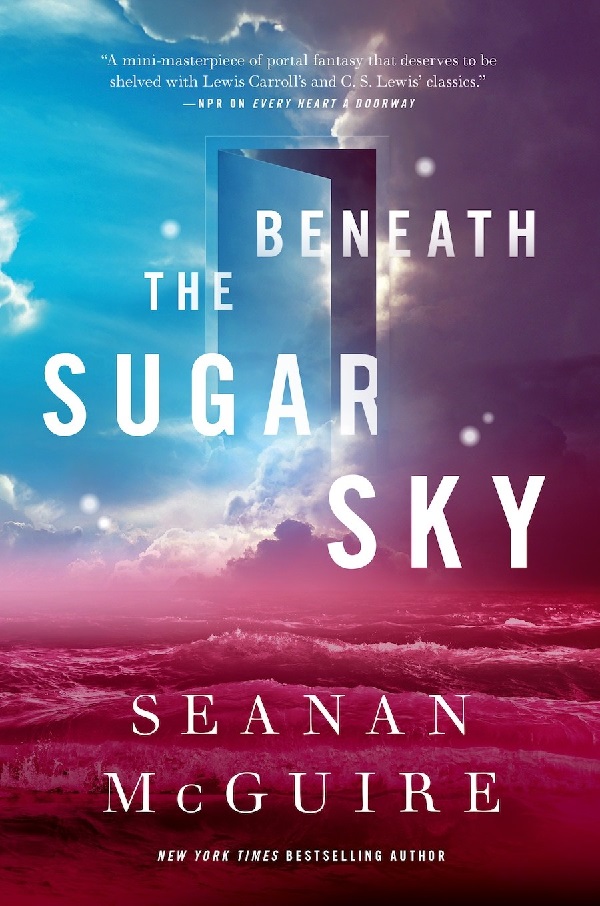
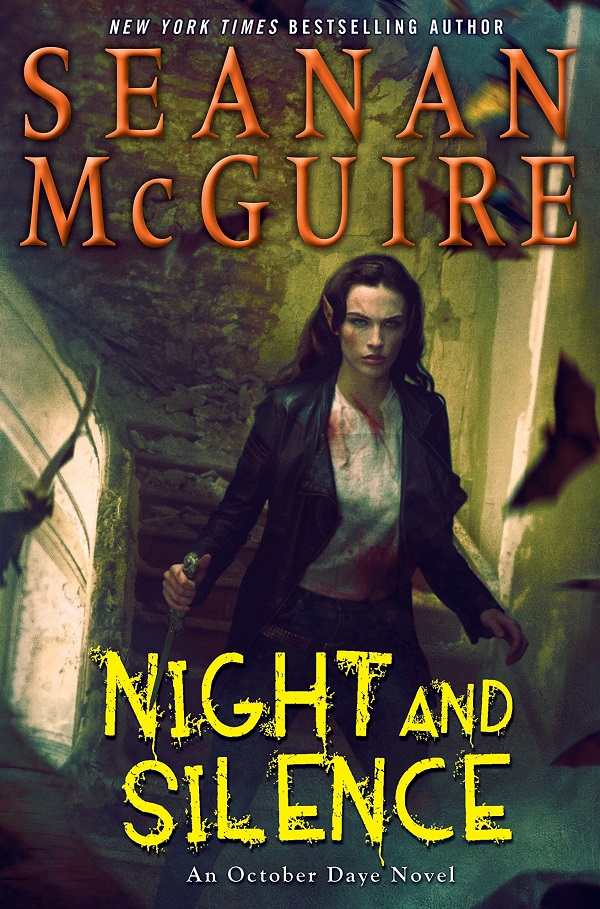
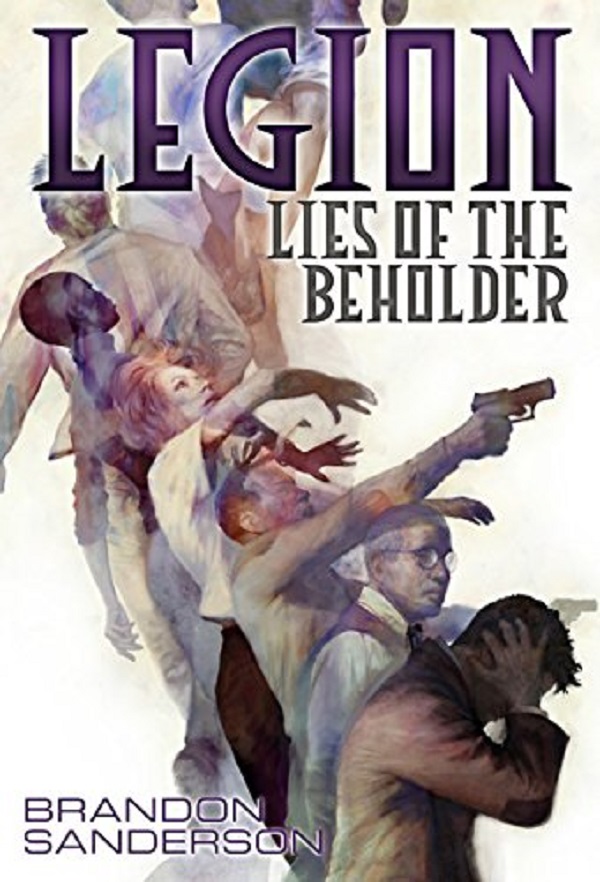

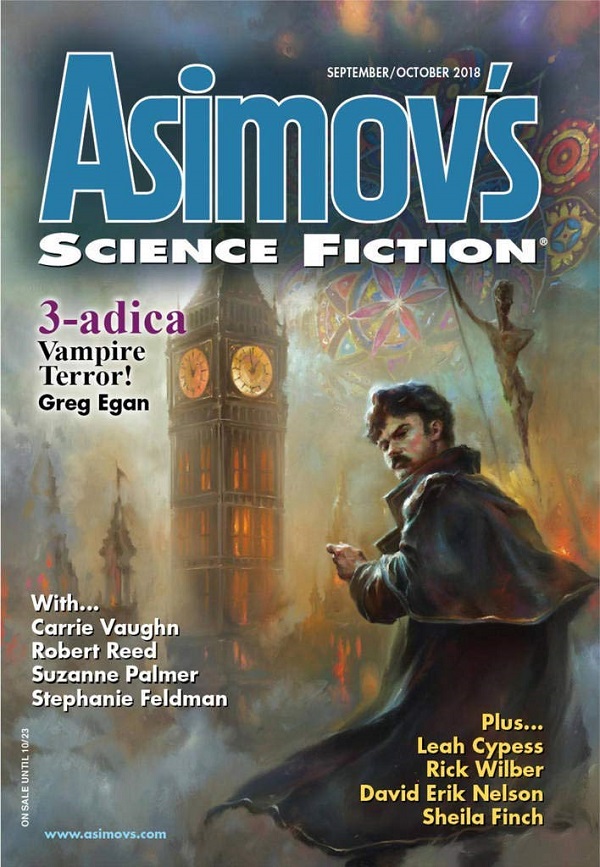
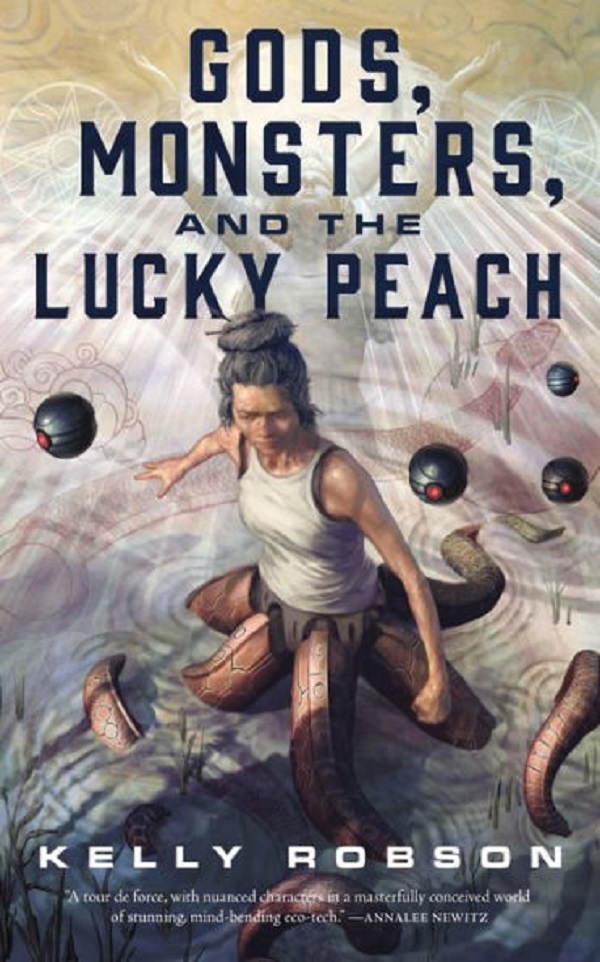

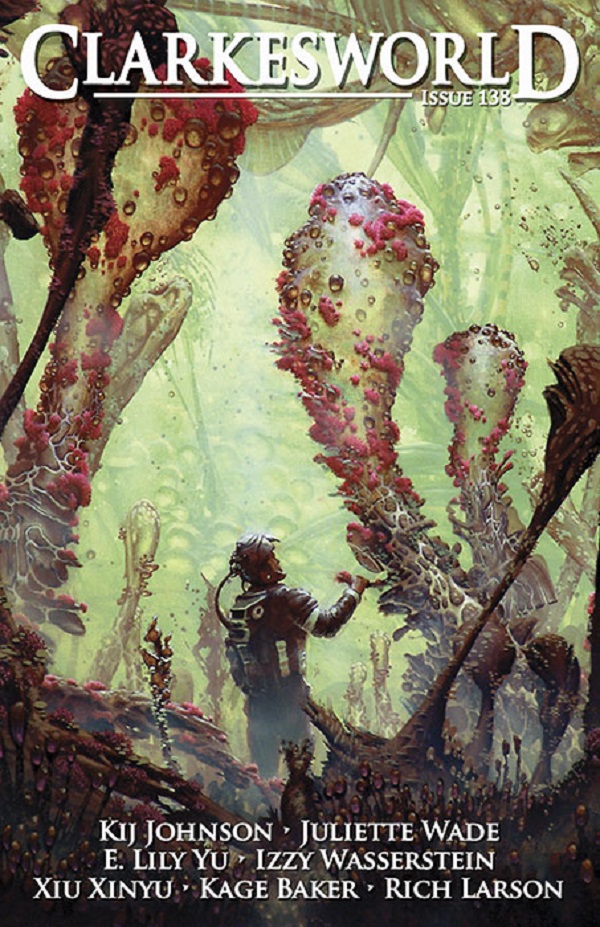
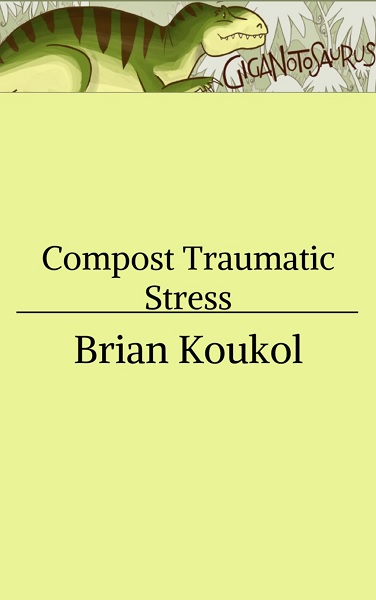
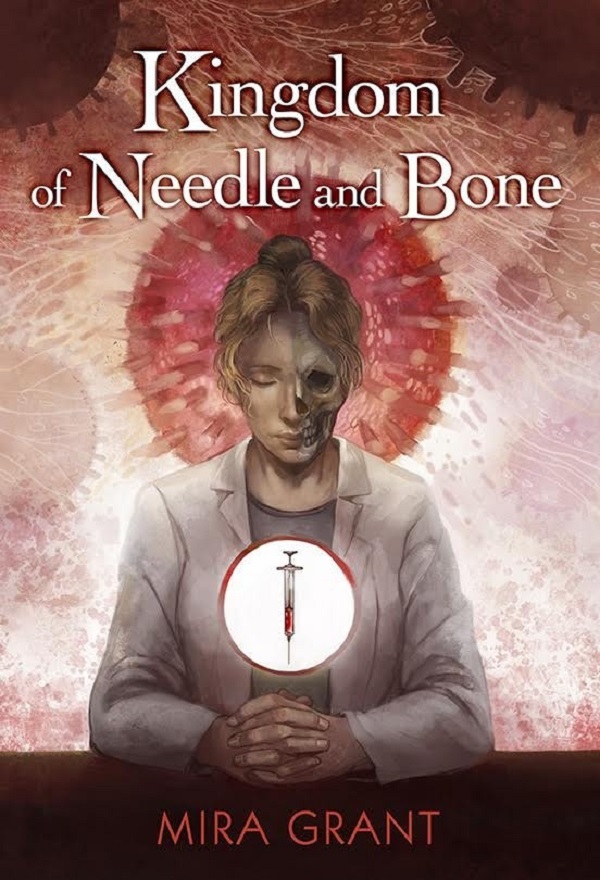
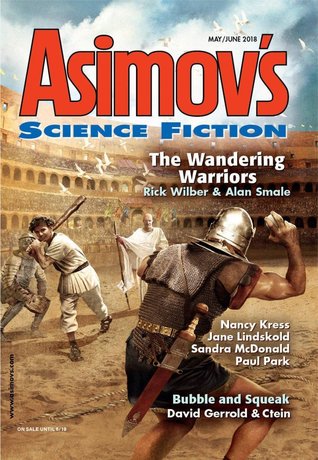
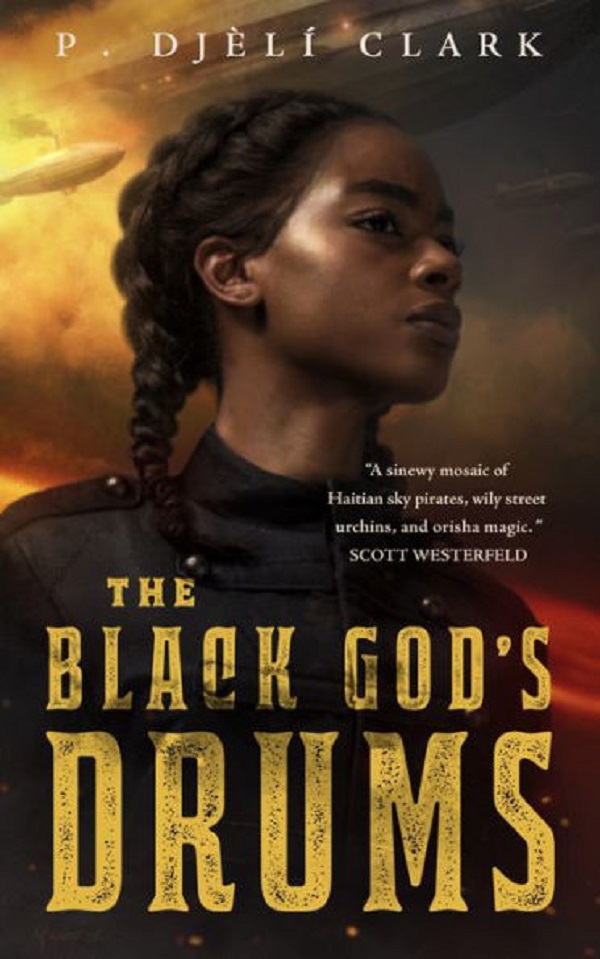
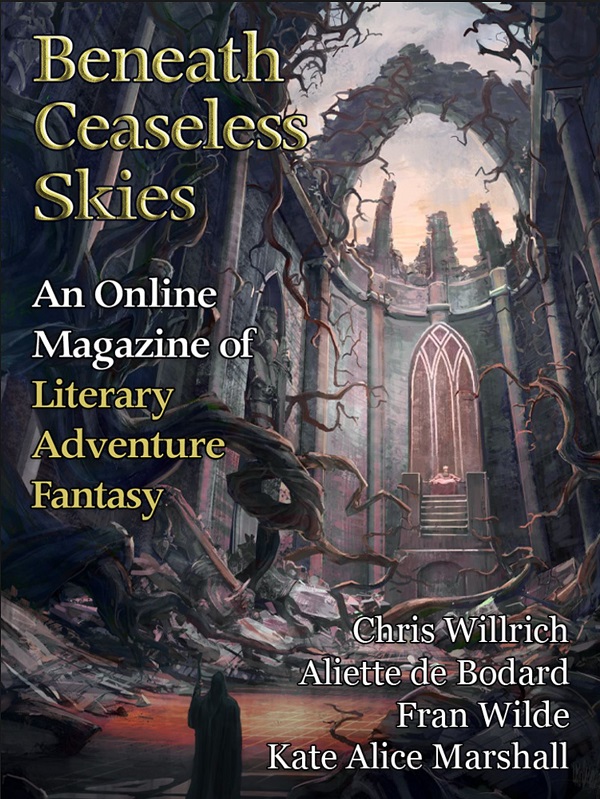
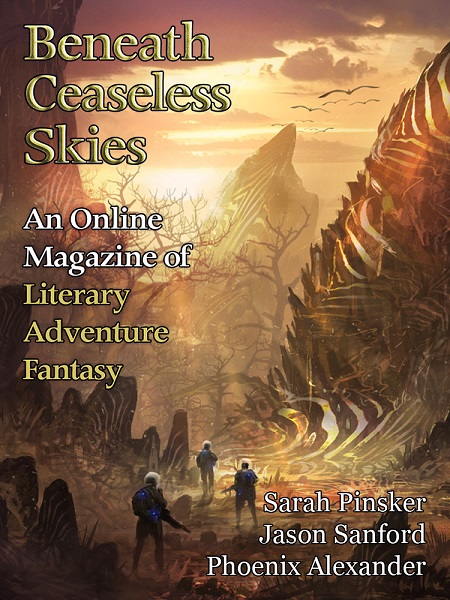
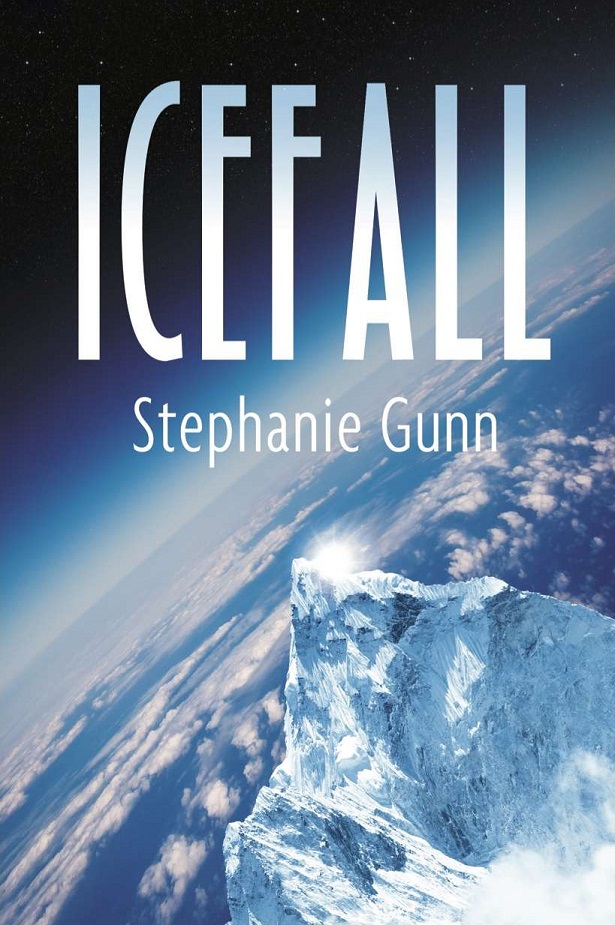
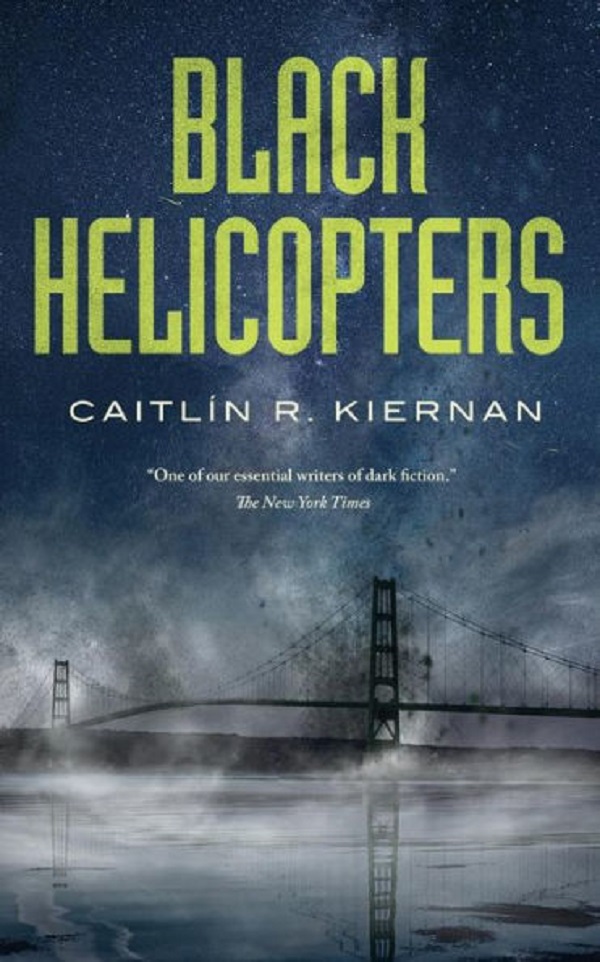
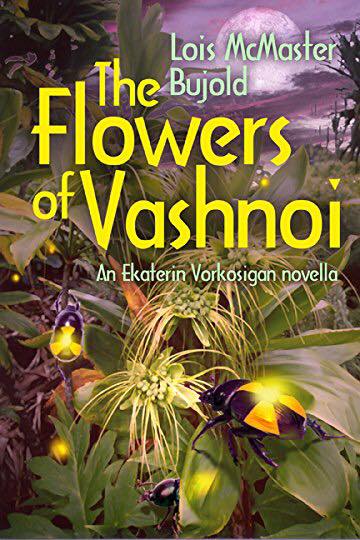
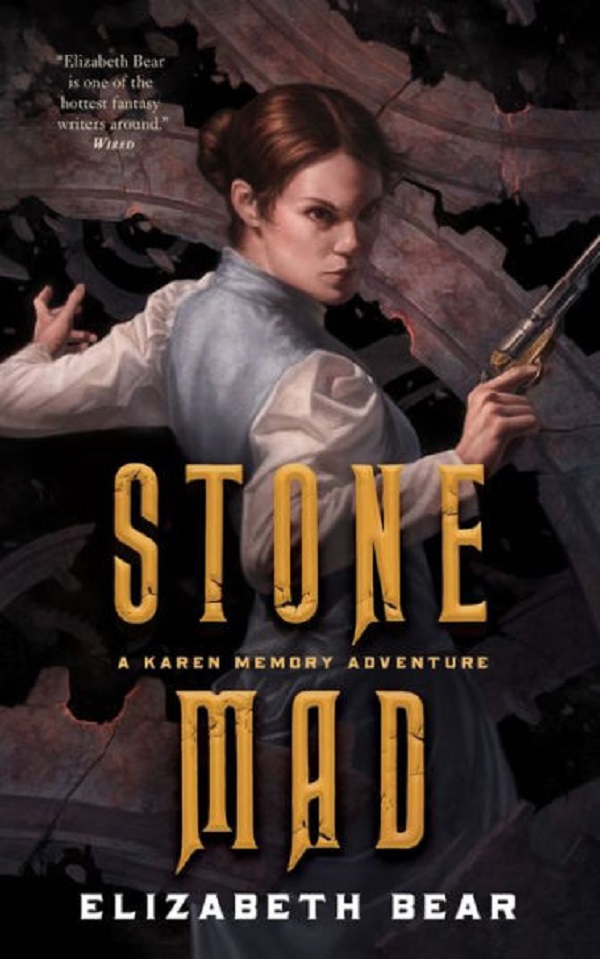
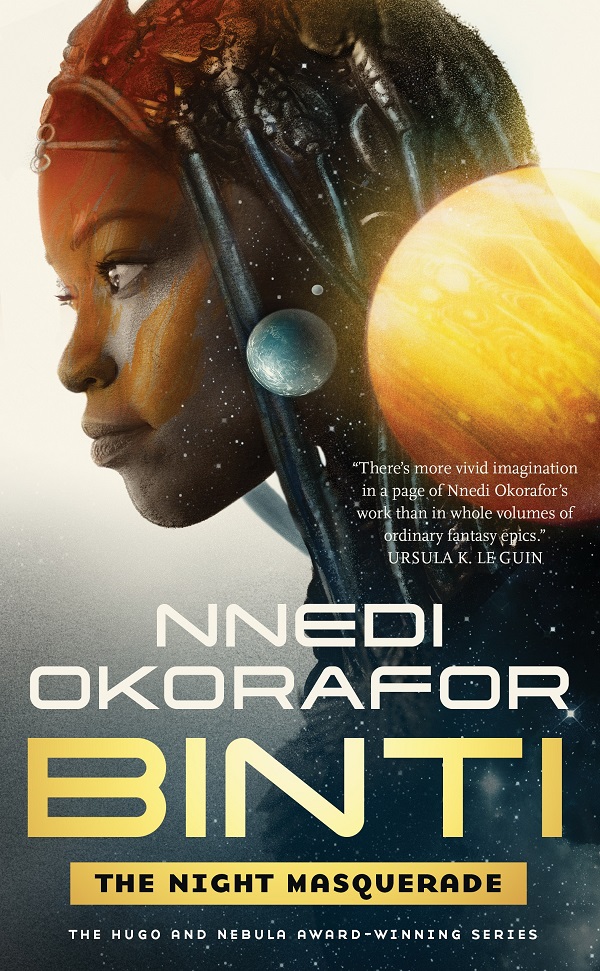

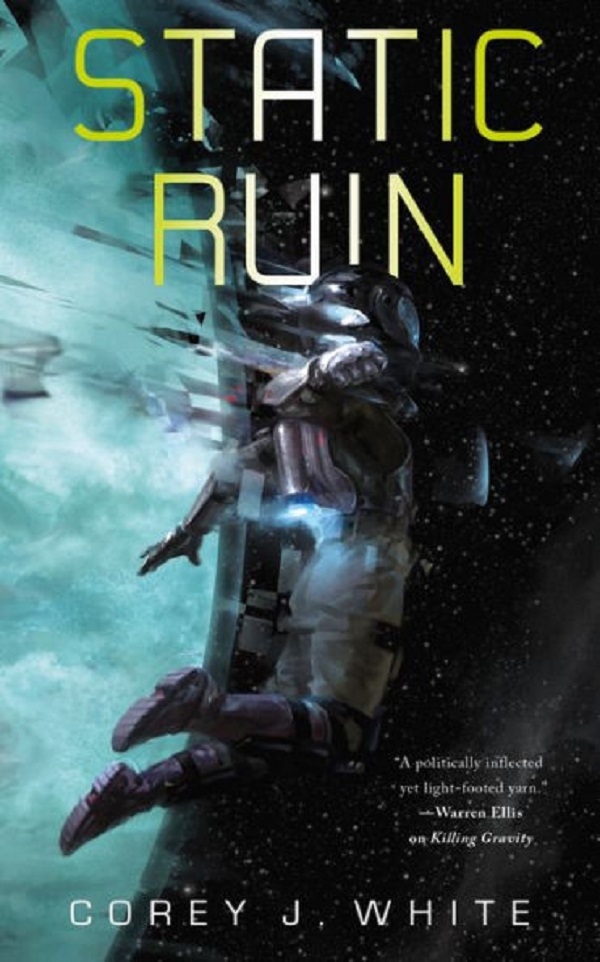
A quick rot13 function for browsers can be created by saving a shortcut in your browser’s Bookmarks / Favorites bar, and then replacing the shortcut link with the text string found here.
You can then highlight / select the rot13’ed text and click the shortcut, which will change the highlighted text in your browser display back to its unencrypted form.
Rocket Stack Rank’s 2018 Novella reviews
:whew: That’s a lot of reading, JJ
My best of 2018 can be seen here:
https://skiffyandfanty.com/blogposts/genretalk/best-of-2018-and-award-eligibility-post-paul-weimer/
This is very awesome! Thank you, JJ.
Wow what a huge project! Bookmarked for much future reference. thanks for putting in all this work!
What a fantastic roundup! Thanks. 😀
Awesome work JJ!
Thanks JJ for that massive roundup.
Great work yet again, JJ.
Here’s some thoughts on ones that don’t have a comment from me already.
Umbernight by Carolyn Ives Gilman – possible I didn’t give this enough attention, but basically several of the characters annoyed me and I ended up skipping through to just see what happened.
Artificial Condition by Martha Wells – MURDERBOT!
Alice Payne Arrives by Kate Heartfield – on goodreads I wrote “An enjoyable little novella (c28,000 words), but very much half of an unfinished story – the sequel is coming next year – that means I’m not really sure whether or not the story really stands up to the interesting premise.”
The Barrow Will Send What It May by Margaret Killjoy – an enjoyable sequel if you’ve read the first one. Roadtripping mystical anarchists deal with some Weird Stuff in a small town.
Between the Firmaments by JY Yang – on GR I wrote “It’s an interesting setting and a fun, quick story driven by the characters. Mind you, the ending is a little sudden, and very much deus ex machina – but maybe that works for a story of gods and their fates.” I should add that there’s something a bit haunting about the characters and their relationships.
The Martian Simulacra by Eric Brown – really not very good, and I like Holmesian pastiches
The Warrior Within by Angus McIntyre – I can see something good coming out of this setting, but the MC seemed far too generic tough-guy for me.
One that isn’t listed above – The Adventure of the Dux Bellorum by Cynthia Ward
From my Goodreads review:
Clickity
Does everyone wishing to nominate for the Hugos have either their membership to Worldcon 76 in San Jose or Dublin in 2019?
Because if you don’t, you need to purchase at least a supporting membership to Dublin by MONDAY 31 December!!
Wow, JJ, this gave me a flashback to my fanzine-publishing days, and how thrilled I’d be when a big meaty article would show up in the mail. I’d have loved to have published something like this — even though I’d have had to retype the whole thing on mimeo stencils.
Mark-kitteh, thanks for those additional comments; I’ve added them to the main post.
cmm, thanks for the reminder: a permalink to this post has been added under the “2018 Recommended SF/F Page” page linked at the top of File 770, so that Filers can refer back to it at their leisure.
Jeff Smith, it’s a good thing that the days of stencils are loooooooong gone, because I wouldn’t be doing that for Mike, much as I love File 770. 😉
@Jeff Smith
I grew up with a manual typer that had a stencil setting. Getting a computer with a word processor was a big step up even from the electric typer I had (and I still have one of those – with a parallel port, and non-standard character codes).
Great job, JJ; and a great resource.
I just took a look at the archives at the Speculative Fiction Showcase and here is a list of the 2018 SFF indie and small press novellas we featured. I’m linking to the Showcase because it has blurbs, buy links, excerpts, etc…
• Desert Sands and Silence by Kate Coe, Kristell Ink, Steampunk
• Shards of the Nightmare by Joel Cornah, Kristell Ink, epic fantasy
• The Apple-Tree Throne by Premee Mohamed, independently published, ghost story
• Fifty Measly Bucks (To Save a Witch) by Juli D. Revezzo, independently published, time travel
• Anachronism by Jennifer Lee Rossman, Kristell Ink, time travel
• The Mourner’s Cradle: A Widow’s Journey by Tommy B. Smith, Crystal Lake Publishing, horror
And last, but not least:
• Evacuation Order by Cora Buhlert, independently published, space opera
• Hunter and Hunted by Cora Buhlert, independently published, space opera
I just compiled a list of indie and small press SFF novellas we featured at the Speculative Fiction Showcase this year, but apparently the number of links tripped the spam filter.
:: sigh :: Nothing in my Unread Pile that isn’t already on that list, I fear… and a lot of stuff not (yet) on the Pile that looks interesting… I will throw in a link to my own thoughts on The Flowers of Vashnoi and Black Helicopters, if they’re any use to anyone.
Thank you for adding those, Cora!
And thanks for your links, Steve (no relation) — I feel ever so much better, having read your more articulate summation of what were pretty much my impressions about Black Helicopters.
Read 19 Novellas this year. My favorite and I’m stunned to not see mentioned here yet, is Brooke Bolander’s The Only Harmless Great Thing, which is brilliantly devastating. I hope it doesn’t get overlooked because it came out so early in the year.
(My review on my blog of it is here: https://garik16.blogspot.com/2018/02/scififantasy-novella-review-only.html)
EDIT: AH I see now it was listed as a novelette. God the Novella definition is tricky, cuz I’d think it was too long for a Novelette.
garik16, it’s 16,825 words — which means that it could fall within the +/- 20% Hugo Novella leeway of the 17,500-word lower limit, but honestly, with Novella competition so stiff, I think that the people who love it would be better off nominating it as a Novelette.
Just checking the box, and adding my thanks to JJ!
Just a quick correction: I haven’t read “Every River Runs to Salt,” by Rachael K. Jones. I think you mean to mark me as having recommended a different story, but I’m not sure which one. (I’ll update the recommendations I made in March 2018.)
It looks as though it was a mis-copy, Greg, I’ve removed it.
Here are all 22 novellas I recommended that are eligible for the 2019 Hugo Awards:
“Artificial Condition,” by Martha Wells, Tor Publishing
Murderbot heads to the RaviHyral Mining Facility to learn the truth about why it went rogue and killed its own clients many years ago.
Great characters, great action, interesting setting
“The Barrow Will Send What It May,” by Margaret Killjoy, Tor Publishing
A group of young, anarchist, demon hunters come to a town where some of the dead are walking.
Interesting Characters, Good Action, Cool Plot
“Beneath the Sugar Sky,” by Seanan McGuire, Tor Publishing
Eleanor West’s Home for Wayward Children caters to children who went to a portal world, came back, and can’t cope. No one planned on the arrival of a child born in a portal world, much less one asking for help—from a dead person.
Sweet, Exciting, Funny, and Moving
“The Black God’s Drums,” by P. Djèlí Clark, Tor Publishing
The Civil War left the US in pieces, and New Orleans is a free city. A teenage cutpurse overhears a plot by Confederate officers to steal a powerful magic weapon, and she sets out to stop them.
Rich World, Great Characters, Lots of Action
“Bubble and Squeak,” by David Gerrold and Ctein, Penny Publications
As a tsunami bears down on LA, James and his fiancé Hu struggle to escape before it hits.
Exciting, Scary, Moving, and Fun
“The Emotionless, in Love,” by Jason Sanford, Beneath Ceaseless Skies
Ancient nanotech controls a few humans to enforce harsh anti-technology rules on a reluctant population. Colton escaped its control at the cost of losing all emotion, and he struggles to be accepted by a caravan that’s trying to evade some of the restrictions.
Good Characters and Action in a Great Setting
“Exit Strategy,” by Martha Wells, Tor Publishing
Muderbot’s recent exploits targeting GrayCris have hurt the company enough that it has kidnapped Murderbot’s friend, Mensah, thinking she was behind it all. It has to rescue her, even though this may be a trap.
Great characters, Good Conclusion to a Great Series
“The Expert System’s Brother,” by Adrian Tchaikovsky, Tor Publishing
Young Handry’s life changes forever when he’s accidentally soaked in a “severing” mixture, which alienates him from the people in his village.
A fascinating world and a plot with lots of twists and turns
“Freezing Rain, a Chance of Falling,” by L.X. Beckett, Spilogale Inc
A young musician/writer’s attempt to recover his online social standing leads him to dangerous people whose idea of “art” can be life-threatening, especially to the desperate.
A Gripping Story in a Fascinating Setting
“Girl with a Curl,” by R. Garcia y Robertson, Penny Publications
Amanda James, unlikely survivor of a battle with slavers, finds herself in command of the largest remaining battleship in the Jovian system. But can she stay in command?
Spectacular and Surprising
“Gods, Monsters and the Lucky Peach,” by Kelly Robson, Tor Publishing
Minh works restoring ecosystems destroyed during the collapse, and she’s intrigued by an opportunity to restore the Tigris/Euphrates valley by using a time machine to gather samples from 4,000 years ago.
Great Writing, Cool Setting, Strong Characters
“In the Lost City of Leng,” by Rudy Rucker and Paul Di Filippo, Penny Publications
In 1933, Doug quits his job to go on an expedition to Antarctica to kill the Great Shoggoth and retrieve the priceless treasures of the lost city of Leng.
A Very Different Twist on Lovecraft’s Story
“Jewel of the Heart,” by Matthew Hughes, Spilogale Inc
Baldemar is just a young henchman for the mage Thelerion, but he’s the only one who can wear the Helm of Sagacity, and right at the moment, they’re doomed without its help. But that help comes at a price.
Great Sword & Sorcery Fun
“Joyride,” by Kristine Kathryn Rusch, Penny Publications
A Fleet training ship passes close to a “scrapheap” of abandoned ships, and Teenage Nadim, leads a group of his friends to “borrow” a scout ship and check it out.
Moving story in a fascinating setting with lots of action
“The Persistence of Blood,” by Juliette Wade, Clarkesworld Magazine
Selemei’s push for a law to allow women to stop having children when it risks their health upends the complex caste-based society she lives in.
Solid Characters in a Rich, Complex World
“Rogue Protocol,” by Martha Wells, Tor Publishing
Murderbot’s hunt for evidence against the GrayCris corporation leads it to a supposedly abandoned terraforming facility it thinks was a cover for illegally extracting alien remnants.
Great Protagonist, Thrilling and Moving Plot.
“Shadowdrop,” by Chris Willrich, Beneath Ceaseless Skies
Action, Adventure, Tragedy, Victory—with Lots of Cats.
Action, Adventure, Tragedy, Victory—with Lots of Cats.
“A Stab of the Knife,” by Adam-Troy Castro, Penny Publications
Two series meet in this crossover episode where ex-assassin Draiken’s search for justice is interrupted when he’s arrested by ace prosecutor Andrea Cort.
Great characters, great dialogue, great worldbuilding
“Starship Mountain,” by Allen M. Steele, Penny Publications
Jeremy Crowe hunts for a missing nobleman’s daughter in a human colony on Tau Ceti e reduced to flintlock-era technology.
Fun characters, interesting setting, solid plot
“Taste of Wrath,” by Matt Wallace, Tor Publishing
In which The Forces of Evil try to destroy our favorite caterers-to-the-supernatural and find they have their plates full
Saved the Best for Last—Deeply Satisfying
“War Cry,” by Brian McClellan, Tor Publishing
After more than thirty years of war, the enemy is getting close to the capital city. Teado’s little team of rangers are holding them off, but they’re starving, and running out of everything, so a chance to ambush an enemy food convey is something they can’t pass up.
A Great War Story with Just a Bit of Fantasy
“We Ragged Few,” by Kate Marshall, Beneath Ceaseless Skies
When Reyna kills a rot hound, she knows her dead sister’s prophecy is coming true, and there’s not much time to convince the rest of the hold they all need to flee.
Strong Characters, Intricate Plot, Lots of Surprises
Farewell, Doraemon by A Que (Clarkesworld)
(I often don’t get on with the Chinese translated stories in Clarkesworld so take with with a pinch of salt) I didn’t dislike this story but didn’t find much to recommend in it either. It’s a leisurely slice-of-life tale with copious flashbacks that paints a good portrait of small village life in China, and very slowly reveals a SFnal element. That element doesn’t really add much to the story and is probably the weakest part of this tale, which is a decent character portrait but lacks any sense of urgency.
Mark-kitteh: I often don’t get on with the Chinese translated stories in Clarkesworld so take with with a pinch of salt
After having read several translated Chinese SF works over the last 3 years, I have come to the conclusion that the style of those stories (flat characters, dry narration which reads like the diary of a not-terribly-interesting person) is just not my thing, which is why I didn’t try this one.
Great, great info, JJ and all.
I’ll check through the list and add whatever vellas I’ve missed to the Goodreads Hugo novella listopia in the next couple of days. I also encourage everyone to add vellas and/or vote there — the more exposure, the better! –> 2019 Hugo novellas .
And JJ, my apologies! I completely forgot that you were waiting for me to figure out those two vella files we were talking about. I’m too tired to want to try messing with them tonight, but if you’re still interested I’ll give em another try tomorrow!
JJ & Mike,
Could really long articles like this one have a lede and then the rest behind the cut? Like the video articles?
Just a suggestion
BravoLimaPoppa3: Could really long articles like this one have a lede and then the rest behind the cut? Like the video articles?
It does, and I did, but that only works on the main page of the blog. I checked, and WordPress’ support site specifically says that this does not work on the actual post page.
However, I did just find their support post on how to paginate, so I’ve implemented that, and broken this post into 4 pages. Let me know if this works for you.
Contrarius: my apologies! I completely forgot that you were waiting for me to figure out those two vella files we were talking about. I’m too tired to want to try messing with them tonight, but if you’re still interested I’ll give em another try tomorrow!
No worries, it’s a busy time of year, and I figured you were doing the holiday thing. But yes, if you’re up to trying to sort it out, I’m still interested. 🙂
The problem with translated stories, for the most part, is that magazines have already paid for the translation (at ~ 50 US-cents per word) before they get to read them. Since they normally pay ~10 US-cents per word for stories, that makes these very expensive stories, so they have to print them, no matter how bad they are.
The problem with Chinese stories in particular is that, until recently, nearly all of the natively written stories were very low quality stuff aimed at small children. Chinese SF/F fans almost exclusively read stories translated from English and turned their noses up at the local product. That means that even something that was professionally published in China (even award winning stories) might well be unfit for publication in the US.
The big exception is Ken Liu’s translations; he reads Chinese stories for pleasure and translates ones he likes, submitting them like any other stories. (I.e. they can get rejected.) His translations–and his alone–score as well or better than stories written by native English speakers. No surprise; they’re the only ones subject to the same editorial standards.
That said, I think there’s been some improvement in the past year or so. I asked Neil Clarke about that, and he told me that he thought the people he worked with in China had, over time, learned what he’s really looking for in stories. If he can get his folks in China to apply the same editorial standards he does in the US, he’ll have accomplished something pretty major.
I also chatted with the Chengu folks at WorldCon 76 in San Jose, and they told me that although there was still a great deal of kid stuff being produced, the government had been subsidizing production of more “Western-style” SF (not fantasy though–the government disapproves of that), and that that meant there was a lot more adult-quality stuff being produced than before.
And an acquaintance who’s a professional translator told me that there’s a great deal of discussion in China right now about things like “show don’t tell” and what sort of principles in general make for excellent stories. (He was specifically talking about SF/F writers.)
So although the general quality of translated Chinese stories has been pretty poor, I do think it has been improving (I actually recommended a few this past year), and I’m optimistic that it’ll get much better over the next few years.
Thanks for that interesting information, Greg, that makes some things more clear. I thought that What Has Passed Shall in Kinder Light Appear had an interesting idea, but that it wasn’t developed in a way that would have made the story a great one, and I thought that it read almost like a children’s story (and it was completely a tell-don’t-show story), so I was really mystified by all of the acclaim it was getting.
re: “Kingdom of Needle and Bone”
(from my Goodreads review)
I suspect this will prove to be a marmite of a book: people will love it or hate it. I definitely don’t hate it, but I’m not quite sure I love it either.
This is not the fault of the author. This book is typical Mira Grant–well researched, thought out, and written. The POV here is omniscient, an unusual choice for this kind of book (previous Grant books have been first- or tight third-person narratives), but the reason why becomes apparent at the end. What’s also apparent from the get-go is the author’s dislike (to put it mildly) of the anti-vaxx crowd, and the reader soon realizes this is a thought experiment of what could happen if they get their way.
I don’t think it’s one of her best, but YMMV.
Pingback: AMAZING NEWS FROM FANDOM: 1-6-2019 - Amazing Stories
The Apple-Tree Throne by Premee Mohamed (self-published, about 28,000 words)
This is set in an alt-history Edwardian Britain, with bits of newer technology creeping in here and there, in the aftermath of a continental war. Lt. Benjamin Braddock has returned home from that war haunted by the massacre of his unit and the death of his commanding officer, Wickersley. He feels a strong connection to his late commander and ends up being the only person prepared to stand up at his funeral and say the expected words – Wickersley being widely blamed for the massacre of his men. For some reason this leads to the Wickersley family taking him under their wing, and possibly is also the cause of his late commander deciding to haunt him…
This is very much a character piece, Ben is recovering poorly from the traumas of war but does have some friends to help him. It successfully gives a sense of melancholy and wistfulness as Ben works through the sense of comradeship he had in the military versus the inevitable trauma and loss it caused. The haunting adds verisimilitude for Ben’s emotional journey but perhaps little else. The alt-history element could be very interesting but there’s no real exploration of it at all – and to be fair that’s not the thrust of the story.
Overall I enjoyed this but felt like the component parts weren’t adding together as successfully as they ought to. I’d happily read more by the author though.
Kingdom of Needle and Bone by Mira Grant (Seanan McGuire), Subterranean Press (excerpt)
Synopsis: Vaccination and treatment for many diseases have been widely available for years – so much so that the populace has come to take their immunity for granted, and complacency sets in. Then a new pandemic appears, from which even the survivors suffer irrevocable damage.
What I thought: This is a standalone novella; however, the text hints that there is going to be a sequel. The author has done extensive research in virology, and this shows in the veracity of the details. This is a cautionary tale about not just the dangers of non-vaccination, but of the difficulties in defining an answer to the question: when is it okay, and not okay, for the government to tell people what they can do with their own bodies?
There are no easy answers here, and this is not easy reading – but there is plenty of food for thought. And the characters are developed enough to make the story feel personal. I’ll be interested to see how a sequel develops this story further.
Compost Traumatic Stress by Brian Koukol, GigaNotoSaurus December 1, 2018 (full text)
Synopsis: The lone survivor of a combat unit annihilated on an alien planet does penance after the end of the war by cleaning up leftover cartridge brass and clearing the alien vegetation, supplanting it with flora which is compatible with humans. As he weeds and plants, he flashes back to scenes from the war and how his own actions, or lack thereof, may have influenced the outcome.
What I thought: This is a really different, interesting story with some unusual and intriguing worldbuilding. The different ways in which PTSD can manifest, and the challenges faced by disabled people, are authentically portrayed by the author, who has spent a lifetime dealing with these conditions. This is a grim story, but it is also a hopeful one, and it is well worth reading.
I don’t really have much to add to what’s already been said regarding The Freeze-Frame Revolution, Umbernight, and everything Murderbot, but will n+1 the recommendations for them.
Beneath the Sugar Sky
To me this was the best one so far, mostly because I found the Down Among the Sticks and Bones narrator to be painfully didactic and distracting from an otherwise enjoyable story. Didacticism is not completely absent here but I didn’t find it particularly intrusive, and the narrative was strong and coherent. I think this would probably work fine on its own storywise but you’d lose a lot of emotional resonance without having read Every Heart a Doorway first.
Binti: the Night Masquerade
I am hesitant to call deus ex machina without a reread but that’s how Ovagv’f erfheerpgvba felt to me in this volume.
The Emotionless, in Love
I liked this a lot and didn’t know it was a sequel until after I had finished it. (And immediately added the prequel to my TBR.)
Gods, Monsters, and the Lucky Peach
I really enjoyed the first half of this but share other Filers’ frustration with the second half. I’m not sure I agree that it doesn’t have an ending, but what we got wasn’t very satisfying. More broadly, I thought the second half generally was trying to do too much thematically in not enough space; the bit about the younger generation’s attitude towards the older in particular felt underdeveloped. Upon reflection I think the pacing issue is exacerbated because much of the first half is process and worldbuilding and there’s not that much room for surprises until the second half.
+1 to Compost Traumatic Stress by Brian Koukol
This was a tough read at times but a really strong story.
Yay, I’m glad you took the time to read it, and found it a good story.
I’m not sure where I happened to see it listed as a 2018 Novella; I think it might have been when I was listing all the Short Form Editor credits (and I think it’s the first novella that GigaNotoSaurus has ever published), but I’m glad that I made a point of finding and reading it.
Yes, it’s a tough read, but an authentic one and really worth it.
Icefall by Stephanie Gunn, Twelfth Planet Press (excerpt)
Synopsis: The Mountain on the planet of Icefall holds the mystery to a lost colony and an irresistible, fatal allure to the climbers of the universe – every one of whom has mysteriously died in the attempt to reach the summit – but Maggie is determined to be the first to reach the top. Aisha, once seriously injured in a climbing incident herself, has always supported her wife, trusting that Maggie would always return from her adventures. But no one ever returns from the Mountain.
What I Thought: This finalist for the Aurealis Award for Best SF Novella is a story of obsession and how it can lead people to make choices which destroy them – but it’s also a story of strange mysteries, and learning to cope with traumatic physical and psychological injury.
Although this story takes place hundreds, if not thousands, of years from now, when planets all over the galaxy have been terraformed and colonized and the geography of the Earth has long been destroyed, it contains numerous references to 20th-century people, countries, ethnicities, and geographical features, which is incongruous enough to impair suspension of disbelief. Nevertheless, it’s an interesting story steeped in mountain-climbing lore and technical details, with some intriguing futuristic technology.